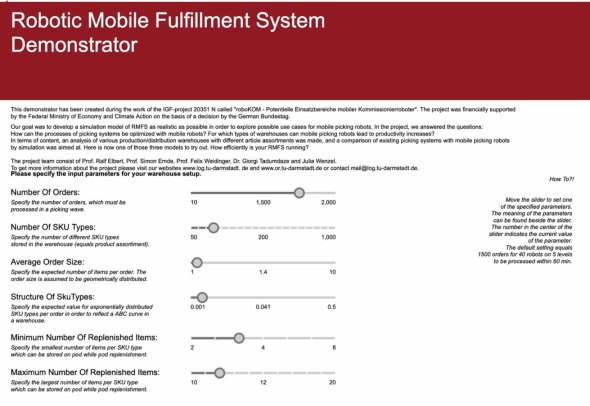A delivery time window is a fixed time interval that is available for loading or unloading a truck at the loading ramp of an industrial and commercial enterprise (shipper). Time windows can be booked by freight forwarders by paying a booking fee via so-called web-based time window management systems (TWMS).
Efficiency improvements through the use of TWMS can be achieved primarily on the side of the shippers. Waiting times and traffic jams at the factory gates are reduced, the efficiency in the transport chain is increased and the improved information transparency can be used to optimize the deployment of personnel and material at the loading ramp. For freight forwarders and transport companies, on the other hand, the implementation of TWMS means considerable additional expenditure. The allocation of delivery time windows according to the “First Come – First Serve” (FCFS) principle is particularly problematic for small and medium-sized freight forwarding companies. Beneficial delivery time windows are often no longer available, which inevitably leads to inefficiencies in tour planning. The integration of an exchange mechanism for booked delivery time windows allows for a subsequent allocation of beneficial time slots and thus leads to an increase of flexibility in tour planning. Subsequent optimization of the FCFS principle is thus made possible by the use of a swap mechanism.
The adoption of a cross-actor and cross-system perspective is intended to ensure that an increase in efficiency can be achieved in the entire inbound and outbound delivery process. To check whether and how the best possible increase in efficiency can be achieved, three or more possible variants of an inbound and outbound delivery process will be examined in a simulation model. For this purpose, a time-window-controlled inbound and outbound delivery process without an exchange platform is first simulated. This variant serves as a reference scenario. Other possible variants could be used to investigate the efficiency gains that can be achieved by implementing an exchange platform, in which the time slots can be traded freely by the actors. Besides, it could be investigated in which efficiency gains can be achieved by implementing an automated file sharing exchange. The delivery time windows are allocated in such a way that the overall benefit is optimized across all actors.
This research project aims to investigate a more flexible allocation of delivery time windows by implementing exchange mechanisms from a cross-actor and cross-system perspective. Based on the simulation results, a guideline will be developed which contains specific recommendations for action for the actors. Furthermore, a web-based tool will be developed that demonstrates the functionality of suitable exchange mechanisms for delivery time windows. The project should also contribute to the standardization of exchange mechanisms between different providers.
Key Data:
Project Duration: July 2020 to June 2020
Funding: The IGF project (20996 N) of the Forschungsvereinigung Bundesvereinigung Logistik e.V. – BVL, Schlachte 31, 28195 Bremen was supported by the AiF within the framework of the program for the promotion of joint industrial research (IGF) of the Federal Ministry of Economics and Climate Action on the basis of a resolution of the German Bundestag.
Project lead: Felix Roeper






